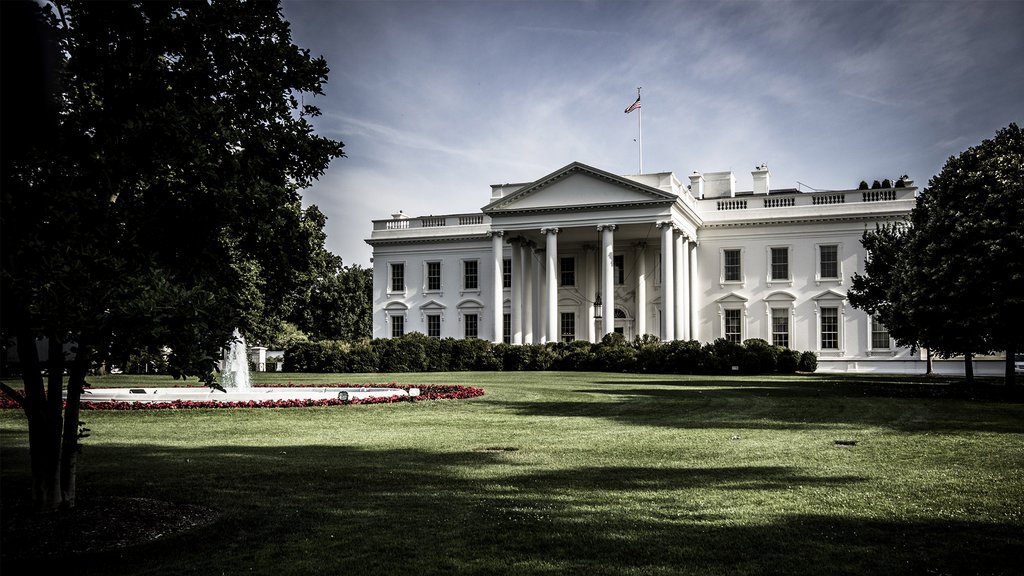Opinions - 21.01.2022 - 00:00
US: Biden´s first year in office
On 20 January 2021, Joseph Biden was sworn in as America’s 46th President. What conclusions can we draw after his first year in office? By James W. Davis.

21 January 2022. For many Americans, Joseph Biden’s biggest accomplishment took place on election night in 2020. With over 80 million votes and 306 out of 538 electors, he ousted the most controversial President since the US civil war from office. Victory was unequivocal. In the last six presidential elections, only Barack Obama back in 2008 had a larger vote lead than Biden’s 7,060,140.
In spite of this, Donald Trump managed to sow doubt among his followers as to the legitimacy of the result. He called them to Washington on 6 January 2021, stoking up their anger in a defiant and misleading speech, which ended with a call to march on the Capitol, where Congress had gathered to ratify the results of the election. What followed was a scene that was reminiscent of a banana republic: an incensed mob broke into the government offices, flaunting both the laws and the norms of the world’s oldest democracy.
In spite of all this, Joseph Biden was inaugurated as the 46th President of the United States on this day one year ago. Breaching tradition and ignoring the country’s need for unity, Donald Trump was absent from the ceremonial handover of office. Despite being taken aback by his petulance, many of us were simply happy to be rid of him. We believed that the healing process could begin.
America divided
One year on and the divisions in the country run deeper than ever. Just 21 per cent of Republican voters believe that Biden is the legitimate President of the United States. Despite many of them having secured their own offices on the same ballot as Biden did his, a not insignificant number of Republican Members of Congress are repeating Trump’s great lie, spreading claims of election fraud.
Since his defeat, the former President has raised more than 100 million dollars for his political activities. He has also been highly critical of fellow party members, who he deems insufficiently sycophantic. With rallies across the whole country, Trump is giving every indication that he will stand for election once more in 2024.
At the same time, the previous popularity of President Biden has fallen significantly. After one year in office, his approval rating is at 40 per cent. This isn’t helped by the fact that his public appearances don't excatly inspire confidence. The electorate is often concerned that it isn’t just his words that he will stumble over. All this highlights the fact that the Democrat’s wafer-thin majority in the House of Representatives and the Senate is in serious jeopardy for the coming mid-terms this November.
In absolute terms, the President can reflect positively on this past year. His most important achievement was ensuring the passage of two enormous legislative packages. The American Rescue Plan Act of 2021 pumped 1.9 billion dollars into an economy ravaged by COVID and was followed by a direly needed 1.2 billion for America’s ailing infrastructure. However, the problem remains that the President set out much higher political ambitions at the beginning of this year. He promised not only to overcome COVID, but also asked Congress for an additional 6 billion dollars to fundamentally overhaul the American welfare state. But mother nature and the nature of politics in a polarised country soon put the brakes on these plans. Delta and Omicron contradicted claims that the virus had been subdued, while two senators from Biden’s own party brought the budget for the President’s domestic political agenda to zero. With a 50/50 split in the Senate, all the President’s fantasies of becoming a second Franklin Roosevelt were shown to be just that: fantasies. In actual fact, the currently unfavourable perception of Biden’s domestic policy is the result of his initial exaggerated promises.
Weak domestic policy
Although surprising in light of his long political career, such errors wouldn’t be so bad, were the President at least able to count on a friendly international environment. But a global supply chain crisis against the backdrop of a decade of cheap money, the billions pumped into the economy during the pandemic and bottlenecks during lockdown, lead to widespread shortages. Countering the resulting inflation requires concerted, bipartisan politics. But will a President with weak domestic policies have the political standing to assume a leadership role?
Biden’s political weaknesses at home and his chaotic withdrawal from Afghanistan have emboldened his opponents to challenge his resolve. In Asia, Beijing is testing America’s willingness to defend the sovereignty of Taiwan, while Putin is mobilising troops on the border of Ukraine.
Does this all mean that we should prepare ourselves for the return of Trump? This question alone is enough to make anyone shudder. But despite Biden’s problems, it is unlikely that those who voted for him can see any benefit in Trump returning to office. The question is, can they be convinced to vote for a President Biden, who would be 82 years old at the beginning of his second term in office?
This article first appeared in the Münchner Merkur of 20 January 2022. This text was translated by 24translate GmbH.
James W. Davis is Director of the Institute for Political Science (IPW-HSG) and Professor for Political Science with a particular focus on international relations.
Image: Adobe Stock / AlexanderRamjing.com
More articles from the same category
Discover our special topics











